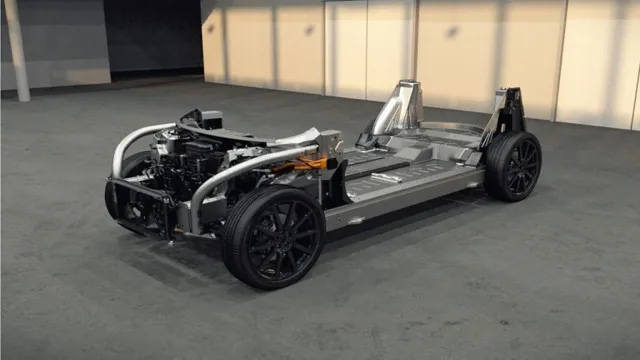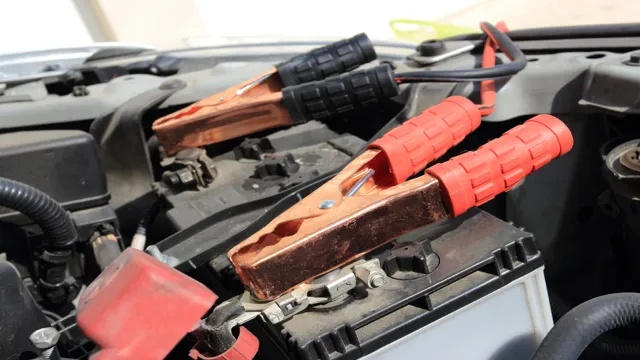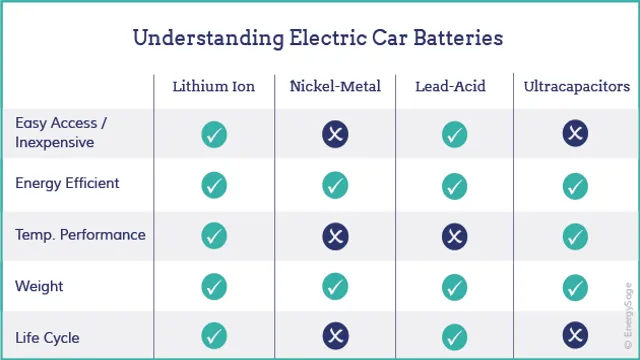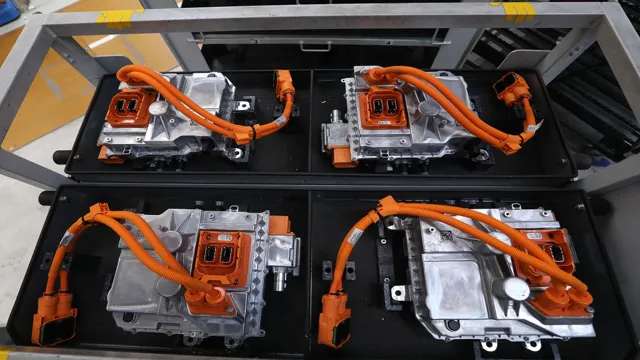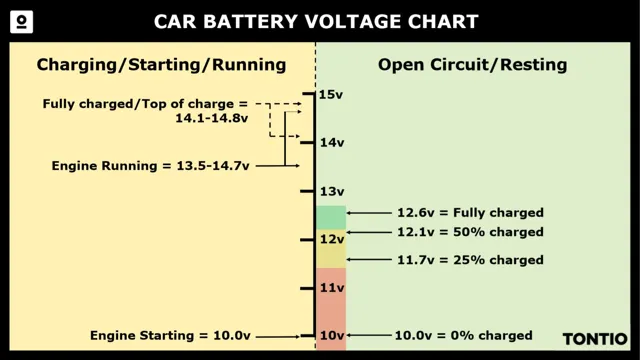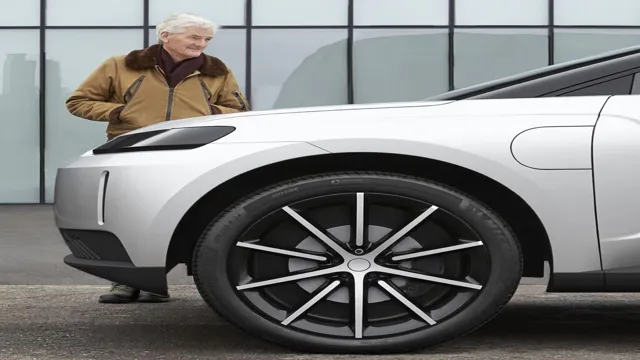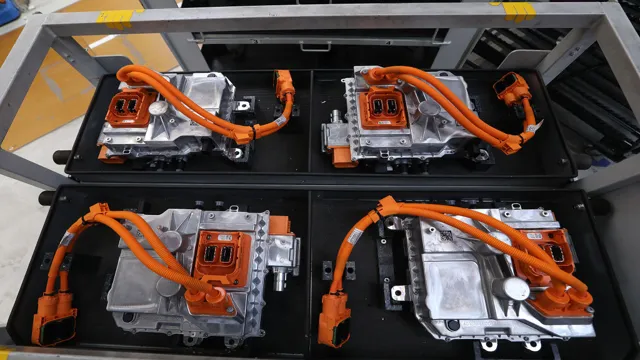Dyson Solid State Battery Technology: The Future of Electric Cars
Have you ever wondered about the future of electric cars? With advancements in technology, it’s no secret that we can expect some big changes in the near future. One company that’s leading the charge (pun intended) is Dyson, a British technology company that’s known for their innovative and sleek product designs. Their latest buzz is centered around their new solid state battery technology, set to revolutionize the electric car industry.
What exactly is a solid state battery? Essentially, it’s a type of battery that uses a solid electrolyte instead of a liquid one. This makes it smaller, more efficient, and safer than traditional batteries. And, as you could imagine, this kind of technology would have a major impact on the electric car market.
Dyson has recently invested over $2 billion in developing their solid state batteries for electric cars. So what does this mean for the industry and consumers? Well, for starters, it could lead to a longer range for electric cars. This is due to the smaller size of a solid state battery, which would allow for more battery cells to fit into a car’s frame.
Additionally, it would reduce the need for the bulky and heavy cooling systems that are required for traditional batteries. But it’s not just about range. Solid state batteries could also lead to faster charging times and increased safety measures.
The lack of flammable liquid electrolytes means that these batteries are inherently safer than traditional ones. Plus, with faster charging times, electric cars could become more practical for everyday use. All in all, Dyson’s new solid state battery technology has the potential to change the game for electric cars.
With improved range, faster charging times, and increased safety measures, the future is looking bright (and green).
What is Solid State Battery Technology and Why is it Important?
The upcoming Dyson electric car boasts a major technological advancement in the form of a solid state battery. Unlike traditional lithium-ion batteries, solid state batteries use a solid electrolyte instead of a liquid electrolyte. This results in several advantages such as faster charging times, increased energy density, and higher safety levels.
Solid state batteries also have the potential to reduce the size and weight of batteries, making them ideal for use in electric vehicles. The Dyson electric car is expected to have a range of over 600 miles and a top speed of 125 mph, thanks in part to the advanced solid state battery technology. As more companies invest in and develop this technology, we can expect to see even more efficient and practical electric vehicles in the future.
Solid State vs. Lithium Ion Batteries
Solid state battery technology is an emerging type of battery that has the potential to revolutionize the energy industry. Unlike traditional lithium-ion batteries, solid-state batteries don’t use a liquid electrolyte, but rather a solid one. This makes them safer, more durable, and longer-lasting than traditional batteries.
Solid-state batteries offer a higher energy density, which means they can store more energy in the same amount of space. This makes them ideal for use in electric vehicles, where space is at a premium and battery life and safety are crucial. Additionally, solid-state batteries are not prone to catching fire or exploding like their lithium-ion counterparts, making them much safer for everyday use.
Overall, solid-state battery technology is an exciting development that has the potential to transform the energy industry and improve the lives of people around the world.

Benefits of Solid State Battery Technology
Solid State Battery Technology Solid State Battery Technology is an innovative approach to energy storage that utilizes solid electrolytes instead of the liquid electrolytes found in traditional batteries. This technology presents a major breakthrough, offering significant advantages in terms of energy density, safety, and environmental impact. Compared to traditional lithium-ion batteries, solid-state batteries can hold a higher charge, have a longer lifespan, and are safer to use due to their non-flammable composition.
The lack of liquid electrolytes also eliminates the risk of leakage and corrosion, making them more environmentally friendly. Solid-state batteries are poised to revolutionize the energy storage sector, offering new possibilities for electric vehicle (EV) batteries, portable electronic devices, and even grid-scale power storage. This technology is gaining traction among technology enthusiasts, researchers, and industry leaders, and it’s only a matter of time before it becomes the new standard in battery technology.
Dyson’s Game-Changing Electric Car
Dyson, the household technology brand, is about to shake things up in the automotive industry with their game-changing electric car. What makes this electric car different from its competitors is the use of solid-state battery technology. With a higher energy density and faster-charging capabilities than traditional lithium-ion batteries, solid-state batteries provide the necessary power to make electric cars a viable option for more than just daily commutes.
Dyson has also promised a range of up to 600 miles on a single charge, setting a new bar in the electric car market. While many are speculating about the design and features of the car, one thing is certain – Dyson’s entry into the electric car market is set to revolutionize the way we think about sustainable transportation.
The 500-Mile Range
Dyson’s highly anticipated electric car is set to shake up the auto industry with its revolutionary 500-mile range. The British technology company has been working on this futuristic vehicle for years, and they aim to make it one of the most impressive electric cars on the market. With a sleek and aerodynamic design, the Dyson electric car should achieve an impressive speed of 125 miles per hour.
This vehicle is set to be a game-changer not only because of its range but also because Dyson has promised that it will be a sustainable, environmentally-friendly option. This promises to bring the Dyson electric car to the forefront of the market, offering a unique alternative to the traditional petrol-powered options. Dyson’s new electric car will be a huge leap towards reducing society’s carbon footprint and ushering the industry into a clean and green future.
Efficient and Fast Charging
Dyson’s upcoming electric car is set to be a game-changer in more ways than one. One of the standout features of the vehicle will be its efficient and fast charging capabilities. Using solid-state batteries, the car will be able to charge much faster than traditional lithium-ion batteries, while also providing greater energy density.
This means longer driving ranges and shorter charging times. Even more impressive, Dyson’s electric car will also feature wireless charging technology, allowing drivers to recharge their vehicle without ever having to physically plug in. It’s clear that Dyson has put a great deal of emphasis on creating a vehicle that not only delivers on performance, but also convenience and sustainability.
Their innovative approach to charging is sure to make their electric car an attractive option for drivers looking for a more efficient and eco-friendly ride.
Unique Design Features
Dyson’s highly-anticipated electric car has already sparked lots of interest due to its unique design features. Firstly, the car’s battery is designed to be more efficient while also having a longer range than current electric car models. Secondly, the car is designed to have a lower center of gravity, which will provide better handling and stability on the road.
Additionally, Dyson has stated that their car will incorporate a solid-state battery in the near future, which will make it even more efficient and powerful. Another standout feature of the Dyson electric car is its use of lightweight materials, such as magnesium and aluminum, which will make the car lighter and more agile on the road. Dyson’s innovative approach to designing an electric car has piqued the interest of many in the automotive industry, and we can’t wait to see what other features this game-changing vehicle will have.
The Impact on the Automotive Industry
The recent announcement that Dyson, the British technology company, is developing an electric car with a solid-state battery has sent shockwaves through the automotive industry. While traditional lithium-ion batteries have been the norm in electric cars for years, many experts believe that solid-state batteries are the future of EVs. This is because they offer a higher energy density, which means that they can store more energy in a smaller space, and they are safer and more durable than lithium-ion batteries.
If Dyson succeeds in developing a solid-state battery for their electric car, it will undoubtedly have a significant impact on the automotive industry. It could potentially revolutionize the way electric cars are designed and manufactured, making them more efficient, safer, and more accessible to the general public. Furthermore, it could give Dyson a considerable advantage over their competitors, positioning them as a leader in the EV market.
Reducing Carbon Emissions
Reducing carbon emissions has become an urgent matter across industries, and the automotive industry is no exception. With stricter emissions regulations and consumer demand for sustainable products, automakers have had to reevaluate their production processes and develop new technologies to meet these demands. One solution has been the increasing popularity of electric vehicles, which emit less or even zero emissions.
However, the shift towards electric vehicles has also brought new challenges, such as the need for a more sustainable approach to battery production and disposal. Despite these challenges, the automotive industry is making strides towards reducing its carbon footprint and creating a more sustainable future for transportation.
Potential Disruption to the Industry
The automotive industry is at the cusp of a major transformation, with numerous technological advancements threatening to disrupt the status quo. With the advent of electric and autonomous vehicles, traditional car manufacturers are being forced to re-evaluate their business models. While the transition towards electric vehicles is being touted as the key to a cleaner and more sustainable future, it is also sure to have long-lasting effects on the automotive industry – from supply chains to dealerships.
Furthermore, the rise of autonomous technology has the potential to revolutionize personal transportation in a way not seen since Henry Ford’s assembly lines. However, this revolution will come at a significant price, with experts predicting that up to 20% of current industry jobs may become obsolete in the next decade. Ultimately, while these changes bring with them countless benefits, they also pose significant challenges that the industry must navigate in order to ensure its continued success.
Conclusion: The Future is Bright for Electric Cars with Dyson’s Solid State Battery Technology
In conclusion, the Dyson electric car solid state battery is set to revolutionize the world of electric vehicles. With its advanced technology and innovative design, this battery promises to bring unparalleled performance and efficiency to the table. And who better to lead the charge than a company like Dyson, renowned for its boundary-pushing approach to engineering and design? So, get ready to fasten your seatbelts and enjoy the ride as Dyson takes electric vehicles to the next level with their cutting-edge solid state battery technology.
It’s time to say goodbye to range anxiety and hello to a brighter, cleaner future on the roads!”
FAQs
Will Dyson be releasing their electric car with a solid-state battery?
It has been announced that Dyson’s electric car will be equipped with a solid-state battery, which offers improved energy density and safety compared to traditional lithium-ion batteries.
How long will the Dyson electric car’s battery last?
The exact duration of the Dyson electric car’s battery will depend on various factors, such as driving habits and weather conditions. However, it is expected to have a range of around 600 miles on a single charge.
When will Dyson’s electric car be available for purchase?
The exact release date for the Dyson electric car has not been announced yet. However, the company has stated that it plans to have the car on the market by 2021.
Will the Dyson electric car be affordable for the average consumer?
Dyson has not yet revealed the expected price range for its electric car. However, the company has stated that it aims to make the car accessible to the mass market, indicating that it may be affordable for the average consumer.
